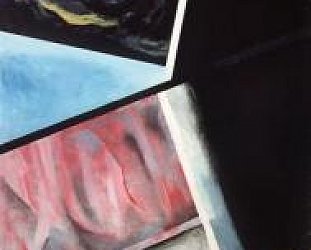Graham Reid | | 1 min read
Robert Plant: Monkey

In 2003 this former frontman for Led
Zeppelin released Sixty Six to Timbuktu, a double disc
retrospective of material from his solo years which was impressive in
its scope: old blues and r'n'b to Zepp-framed stadium rock and his
journey into music from North Africa.
As a musical explorer Plant hasn't
stopped: two years later came the exceptional album with his band
Strange Sensation, Mighty ReArranger, an exotic
prog-meets-world music; then three years ago was his Grammy-grabbing
rootsy rock Raising Sand with Alison Krauss.
You wouldn't dare predict a Plant album
and this one – in a title which was the name of his pre-Zepp band
with drummer John Bonham – finds him with Raising Sand
guitarist/Americana legend Buddy Miller as co-producer, Darrell Scott
on mandolin, accordion, pedal steel etc.
The material is diverse – songs by
Los Lobos, Richard Thompson, Townes Van Zandt alongside the
traditional Satan Your Kingdom Must Come Down (most recently
given a much more brooding reading by Willie Nelson on Country Music), some lost Fifties pop and originals.
But all are given a twist: Los Lobos' Angel Dance
has North African elements; the original Central Two-0-Nine
sits somewhere between a backporch rocker in Tennessee and his work
with Jimmy Page on No Quarter, and the widescreen Petty-like country guitar pop of Van Zandt's once-folksy Harm's Swift Way.
Most impressive are the sonic landscape
given to Low's Silver Rider and Monkey (both unsettling and
evocative piece with Patty Griffin as Alison/Emmylou/ghostly
presence), and, at the opposite end of this broad spectrum, the effortless pop of Only Sound That Matters.
As interesting as this is – and it is
certainly that – the emotionally lighter songs (You Can't Buy My
Love, Falling in Love Again, the traditional Cindy over
jaunty backdrops) stand in odd contrast to the more impressively dark
and unsettling pieces where the dark heart of this album really
beats.
Those mood swings mean Band of Joy – which is far from joyous sometimes – unfortunately ends up slightly less than the sum of its parts.







post a comment